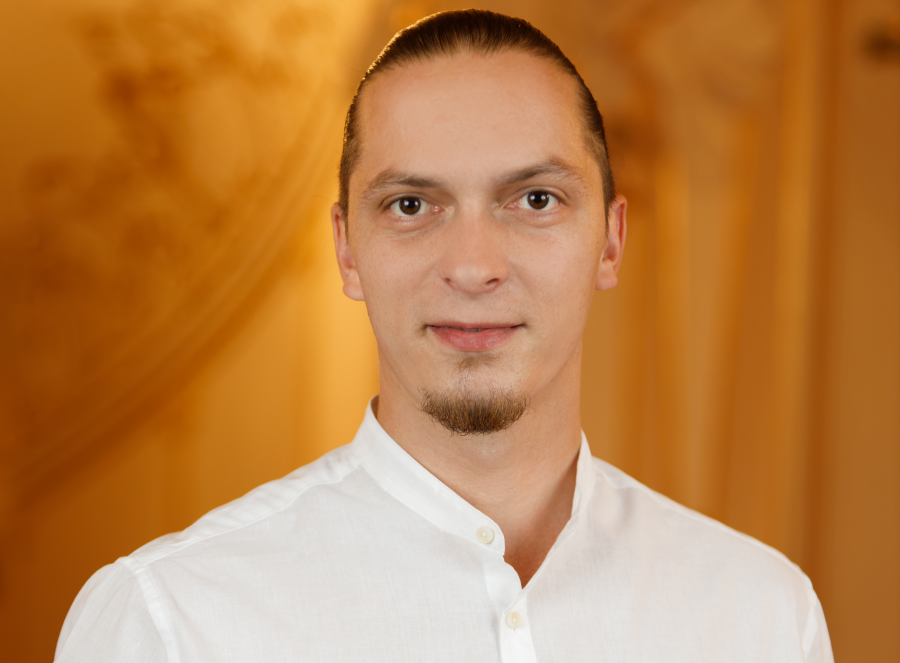
News / Nagyvárad Dance Ensemble 2021.11.19
“Greek Mythology Eepresents Power and Knowledge” – Interview with Director Csaba Györfi
On 21th of November, at 7 pm, Oradea State Philharmonic hosts the first premiere of the Oradea Dance Ensemble this year in the Enescu-Bartók Hall. The contemporary dance performance Antigone is directed and choreographed by Csaba Györfi. We talked to him about the premiere. The full interview can be read in the December 2021 issue of Újvárad magazine.
Your debut performance at Szigligeti Theatre, Elektra, was a new adaptation of a Greek tragedy. This November you will stage Antigone in the same theatre. Why this fascination with ancient themes?
For me, the elemental power of Greek drama, the relevance of their stories, the purity of faith in by-gone ages are factors that I always like to engage within the theatre. The world of Greek mythology represents power and knowledge that amazes me again and again, that moves me and inspires me to create. It is an admiration for the knowledge and exploration of a timeline in which the actions of human beings are fundamentally different from those of our times, their relationship with the gods is powerful, and human frailty and error have fatal consequences. Seven years passed since the premiere of Elektra, which was my first work in Oradea, and I felt it was high time to create again on a Greek theme.
What is the most important message of Sophocles' drama for people today? How can this be reinterpreted in dance?
Antigone is the unquestionable hero of the story. The brilliance of her power derives from the fact that she willingly accepts death because she holds fast to her beliefs. The reason for her action and her persistence is not self-interest, but rather the desire to overthrow a system, the desire for a better and more beautiful future in which she can no longer participate. To me, this suggests a human strength that we don’t often see in our everyday life. The expressive power of the body can tell us everything about the human soul, as it is usual in my performances, I am working with the conflict situations of the body, redefining relational systems. In the case of Antigone, it is the energy and emotion of conflict that drives and reformulates the story.
What is the biggest challenge in staging such a well-known story?
The biggest challenge is to stage the play in a way that respects the spirit of the play, creating a new expressive language, and creating a powerful performance that is also understandable. My goal is to be able to compose what the work represents in its essence into the bodies as precisely and expressively as possible. This is no small challenge for the team either, I was looking for a theme and idea that could challenge and share a common cause for all performers during the rehearsal process.
Who do you recommend the show to?
I hope that, to those who know the story, we will be able to offer a version that is new. And for those who are completely unfamiliar with this world, it is a dance theatre performance in which the expressive power of contemporary dance, sometimes with concrete elements, sometimes with moments that are staged but at the same time more suggestively lived, attempts to construct a story that is, in my opinion, bitterly beautiful.
Interview by: Árpád Levente Bíró
